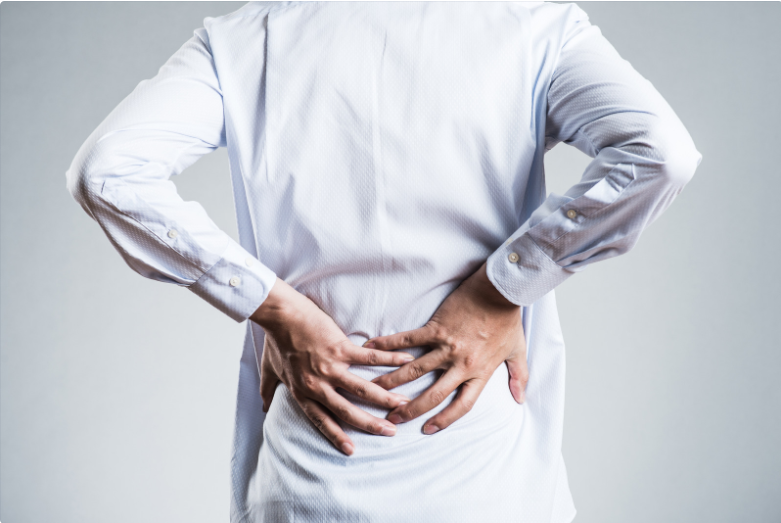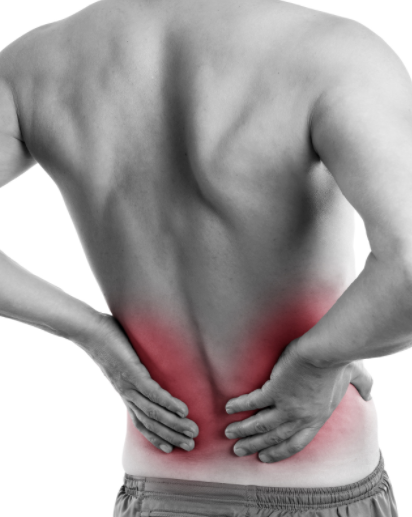Why Does My Back Hurt When I Sleep? 6 Sleeping Tips To Relieving Back Pain
Back pain is one of the most common challenges people face when it comes to their sleep, regardless of their health, age, and overall condition. There are many factors that can cause back pain and the good news is that with some thorough analysis and troubleshooting steps, there is a good chance that you can eliminate common symptoms during the night or when you wake up in the morning.
Solving common lower back pain issues can be easier than you think, as long as you properly assess your personal situation and make the necessary changes. So, today, we are going to be going over 5 reasons why you may be suffering from morning back pain, and how you can potentially eliminate symptoms including pain and stiffness in the morning.
Just a quick side note before we begin, we understand that everyone's situation is different. Therefore, as a quick disclaimer, we want to quickly say that these tips are simply quick troubleshooting tips and that any severe health condition should be properly assessed by a doctor. So take this guide with a grain of salt, and if you don't see any improvement after putting these 5 tips to the test, then it is advised that you seek a healthcare professional for a professional assessment of your condition.
6 Reasons You May Have Back Pain When You Sleep
Your Mattress Is Long Overdue
One of the most common reasons why most people have back pain is due to a mattress that is too old. An old mattress that is worn down will eventually lose its ability to support your back, causing your spine to not be properly aligned. As a result, unnecessary tension and pressure are created which causes your muscles to become tighter, therefore resulting in lower back pain.
This can apply to both spring/coil mattresses and memory foam mattresses. Springs inside coil beds will eventually wear down and become softer overtime, whereas the material foam mattresses will become softer. In most cases, the center of your mattress will wear down first because that is where the majority of your body weight is.
Ways you can diagnose whether your mattress provides proper support is by laying on it and asking someone to check if the center of your body is caving downward. You can also explore similar mattresses to your own by visiting a mattress store for a better comparison. If in fact your mattress is somewhat flimsy and feels beat down, then this can make symptoms worse in the morning it may be time for a new one!
Wrong Choice Of Mattress
A worn-down mattress may not be the only reason why you may be experiencing chronic pain and stiffness when you get out of bed. Choosing the wrong one is also a common theme we see regularly when customers shop around, which is why asking the right questions becomes so important before committing to a final decision.
It all comes down to your sleeping position and how you sleep. Side sleepers require mattresses that are softer in order for their bed to contour better to their body, where back and stomach sleepers require a more firm mattress in order to get better mid and bottom spinal support. If you tend to alternate between positions, then you have to find the medium between the two.
If you want to learn more about which sleeping position is best, you can read an in-depth article on the topic, here.
Inadequate Foundation
As much as your bed is important for supporting your back, the foundation underneath your mattress also plays a major role when it comes to your sleep.
Foundations, otherwise called ‘box-springs’ can come in many forms, from solid wood construction to wire and metal frames. Typically, boxsprings will have slats that stretch across the width of the foundation in order to provide even weight distribution for the mattress. The more support your mattress has, the more support is provided to your lower back!
But just like mattresses, foundations can wear down and lose shape, which can cause your mattress to cave in and lose shape as well. As a result, your spine won't get the proper support it needs, therefore causing back pain. So, it is important that you make sure to check if your foundation has any cracks or is broken in any way. Replacing it may not only resolve back pain symptoms but can also help with the longevity of your mattress.
Poor Choice Of Pillows
Pillows are one of the most overlooked pieces that can also cause a problem for most back pain problems. Your neck is connected to your spine, and without the proper elevation for your specific body type, it can often result in stress and improper posture throughout the nighttime.
Choosing the right pillow can be tricky, and swapping it out should be your last resort after assessing your mattress and foundation first. There are many types of pillows, from memory foam to feather-filled pillows, tough the main thing to look for when choosing a new one should be the height in order to achieve the appropriate head elevation that will keep your spine relaxed throughout the night.
Sleeping Position
If you notice lower back pain every morning, your sleeping posture could be the culprit. Poor sleeping positions can put pressure on your spine and cause its natural curve to flatten out. This causes discomfort along with strain in joints of the lower body that are used throughout the day but not as much at night when we sleep upright or stomach down for prolonged periods of time.
If this is a common occurrence it might be worth investing in an ergonomic pillow or mattress so that there's less risk posed to both short-term and long-lasting health issues from poor resting position choices while trying to get some shut-eye!
Every sleeping position has its perks, but you should never slouch in bed. Sleeping on your side or back by placing a pillow under your knees is recommended for better spine health and improving sleep quality and can help prevent pain and stiffness in the morning. If sleeping on the stomach is the only comfortable option for you then place a support cushion below your pelvis to take pressure off of it when lying down flat.
What If I Still Have Back Pain?
If all else fails then there may be other reasons that may be contributing to your back pain. Some causes can include:
-
Heavy lifting at work
-
Improper lifting technique
-
Poor posture during fitness routines
-
Not sitting properly or slouching
-
Stress and anxiety
-
Smoking
-
Age
-
Pregnancy
-
Genetic factors
If improving your bed and sleeping environment doesn't help with your back pain symptoms, then most likely there are other influencing factors that may be contributing to your lower back pain. If that is the case, then it is important to see a doctor or physiotherapist immediately in order to get proper advice diagnosis, or treatment to prevent further complications and/or stop the condition from worsening.






